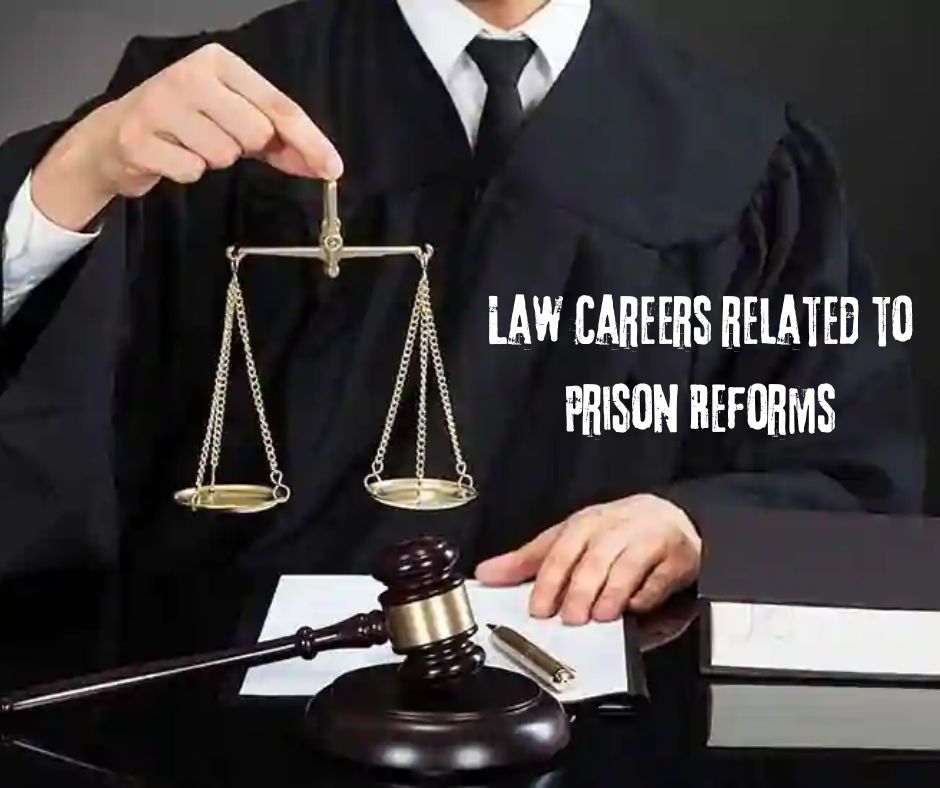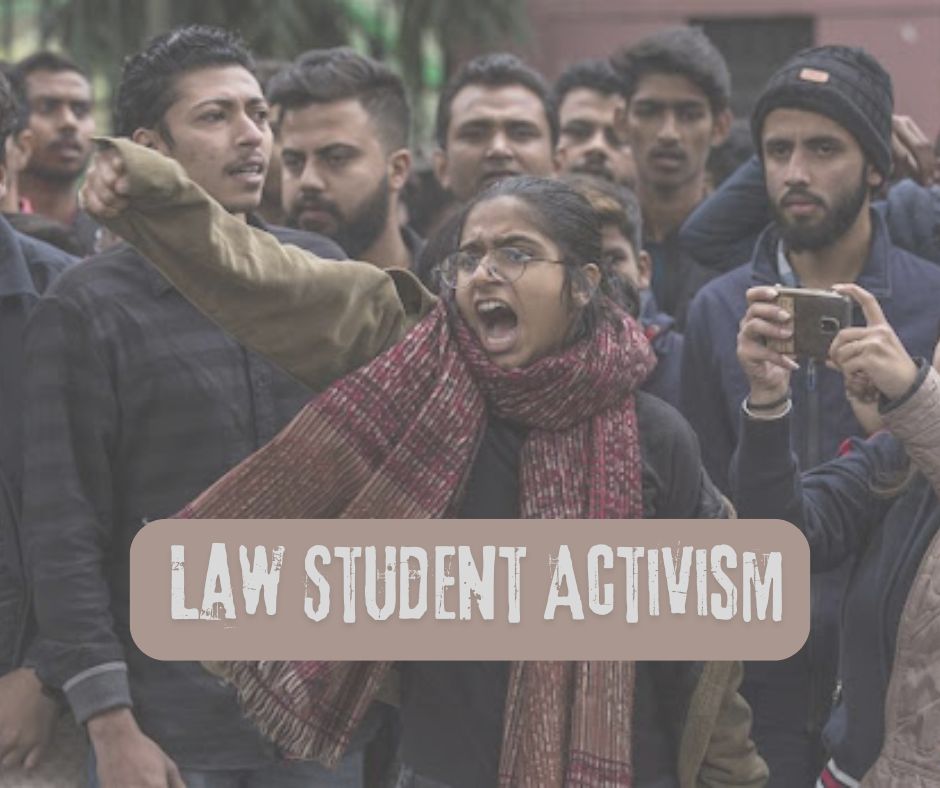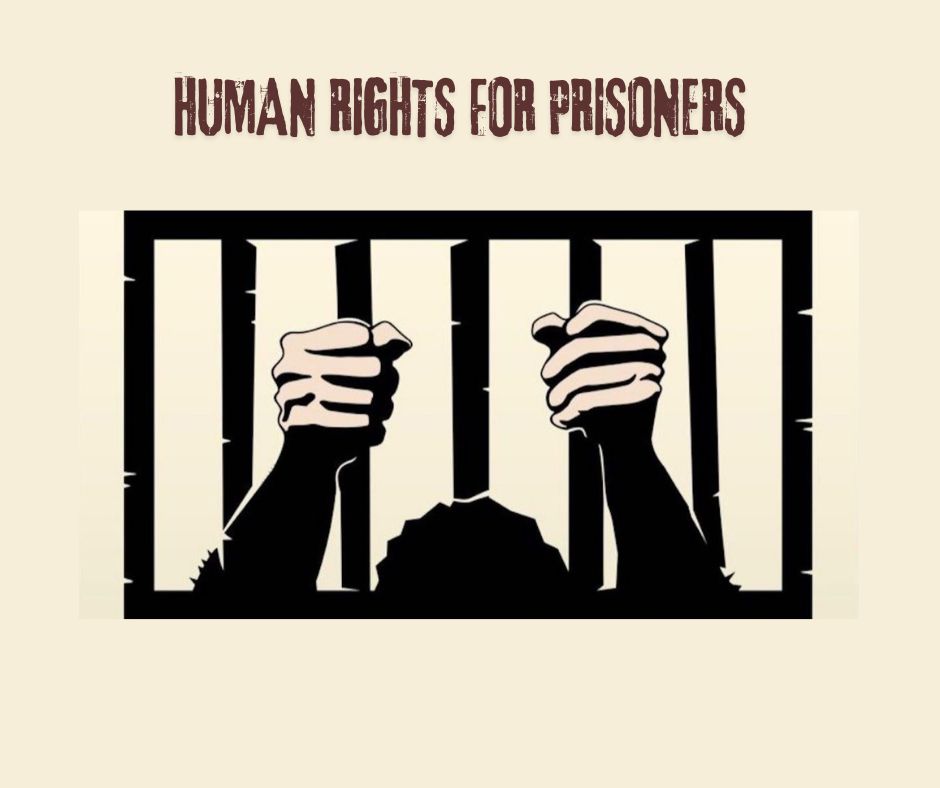At SMS Law College, Varanasi, we not only produce ‘advocates’ who can help their clients win their cases but also ‘responsible lawyers’ who can help in improving and even, overhauling the law and order situation in the country.
We have all read news that highlights how Indian prisons face severe overcrowding, poor sanitation, and inadequate healthcare – necessitating urgent reform. Indian prison reforms are crucial to ensure justice and humane conditions for inmates.
Law professionals can play a pivotal role in this endeavour, leveraging their expertise to drive meaningful change. We aim to guide law students and professionals on how to contribute to prison reforms while advancing their law careers.
As law students, you can:
- engage in law student activism,
- provide legal aid for prisoners, and
- specialise in human rights law in India for prisoners.
Let’s talk about this in detail.
Understanding Indian Prison Reforms

Indian prison reforms have a long history – evolving from colonial-era punitive measures to modern rehabilitative approaches.
Initially, prisons were harsh and focused on punishment rather than rehabilitation. Post-independence, the Indian government recognised the need for humane treatment and reformation of inmates. This has led to the formation of various committees which have given several recommendations aimed at improving prison conditions.
Despite these efforts, current challenges persist, including:
- severe overcrowding,
- inadequate healthcare, and
- lack of proper sanitation.
These issues highlight the urgent need for comprehensive reforms to ensure humane conditions and uphold the human rights law in India for prisoners.
In response, both the government and NGOs have initiated notable reforms. The Model Prison Manual 2016, for example, provides guidelines for prison management and inmate welfare. NGOs have been instrumental in advocating for prisoners’ rights, providing legal aid for prisoners, and promoting law student activism to drive change.
These combined efforts are crucial for creating a more just and humane prison system while offering meaningful law careers dedicated to reform.
What law careers intersect with Indian prison reforms?

For budding lawyers, it is important to know how working on Indian prison reforms can help them in advancing their law careers. To begin with, championing human rights law in India for prisoners can be a fulfilling path for those who have been witnesses to such cases personally. Professionally, law students aiming for roles like litigation lawyers, policy advocates, researchers, and even government offices within the prison system will find such endeavours more helpful.
Engaging in law student activism focused on prison reforms isn’t just about advocacy and directly impacting the lives of inmates. It’s a hands-on learning experience. The students will find themselves:
- drafting legal documents,
- conducting research on legal aid for prisoners, and
- advocating for policy changes.
These are all essential legal skills that are valuable in any legal career.
Numerous lawyers have made significant contributions to Indian prison reforms. For instance, Vrinda Grover, a renowned human rights lawyer, has been a tireless advocate for prisoners’ rights in India. She has:
- represented victims of custodial violence,
- challenged discriminatory laws, and
- fought for the rights of marginalised communities within the prison system.
Her work has led to landmark judgments that have strengthened the legal framework for prisoners’ rights and improved conditions in Indian prisons. In the case R.D. Upadhyay vs. State of Andhra Pradesh (2006), Grover represented the family of a man who died in police custody. The Supreme Court held the police accountable for custodial deaths and laid down guidelines for preventing such incidents.
There’s another example. Colin Gonsalves, a senior advocate and founder of the Human Rights Law Network, has been a leading figure in the fight for prison reform in India. He has:
- represented undertrial prisoners,
- challenged the overuse of preventive detention laws, and
- worked to ensure access to legal aid for prisoners.
Gonsalves’s advocacy has helped to raise awareness about the plight of prisoners and has led to significant reforms in the Indian justice system.
It was Gonsalves’s efforts in the Hussainara Khatoon vs. Home Secretary, State of Bihar case (1979), that the Supreme Court gave the directive which highlighted the plight of undertrial prisoners and emphasised the need for speedy trials.
Gonsalves has also advocated for the use of alternatives to imprisonment, such as probation, parole, and community service, for non-violent offenders. His efforts have contributed to a growing recognition of the need for a more humane and rehabilitative approach to criminal justice.
Whether your passion lies in courtroom battles or policy advocacy, the field of prison reform offers diverse and impactful career opportunities. By aligning your legal aspirations with the cause of justice, you can forge a fulfilling career while contributing to meaningful change in India’s correctional system.
How to engage in law student activism regarding Indian prison reforms?

Law students can play a crucial role in driving Indian prison reforms. Their energy, knowledge of human rights law in India for prisoners, and passion for justice can create a significant impact in the field. Some of the tips on how they can enter this field are:
- Join Legal Aid Clinics: Offer legal aid for prisoners, providing them with essential legal representation.
- Intern with NGOs: Gain hands-on experience working on prison reform projects, conducting research, and advocating for change.
- Raise Awareness: Organise events, write articles and use social media to educate the public about prison conditions and the need for reforms.
- Lobby for Policy Changes: Engage with policymakers and advocate for legislation that protects prisoners’ rights and promotes rehabilitation.
By actively participating in law student activism, you not only contribute to a noble cause but also develop valuable legal skills and build a network that can benefit your future law career.
How can you provide legal aid for prisoners?

Access to legal aid for prisoners is fundamental to ensuring justice and upholding human rights law in India. Many inmates are unaware of their rights or lack the resources to access legal services. As law students and young lawyers in Varanasi, you have a unique opportunity to engage in law student activism by providing pro bono legal services. This not only helps prisoners but also provides you with invaluable experience in criminal law and advocacy.
You can also establish your own legal aid clinics by following these steps:
- Partner with NGOs that work on prison reforms and set up clinics within or near prisons.
- Recruit volunteers (especially law students and lawyers) willing to dedicate their time and expertise.
- Train your volunteers on relevant laws, prison procedures, and client interviewing techniques.
- Offer services, such as conducting legal awareness workshops, assisting with bail applications or appeals, and advocating for better prison conditions.
How to specialise in human rights law in India for prisoners?

We need to be aware that Indian prisoners are protected by various constitutional provisions and international covenants like the Universal Declaration of Human Rights. These laws guarantee basic rights such as the right to life, dignity, health, and legal representation.
As mentioned earlier, some of the key issues plaguing Indian prisons include overcrowding, violence, lack of healthcare, and denial of legal aid for prisoners. Addressing these requires a deep understanding of human rights law in India for prisoners.
As a law student, you should focus on constitutional law, criminal law, and international human rights law to prepare for this field. You should also participate in law student activism through internships, legal aid clinics, or NGOs working on prison reform. You can also contribute to legal research on prison conditions, draft petitions, and advocate for policy changes.
Conclusion
Indian prison reforms are long pending because of inadequate resources. Law students and professionals have a unique opportunity to address these issues and drive meaningful change. By engaging in activism, providing legal aid, and specialising in human rights law, they can contribute to creating a more just and humane prison system.
While advocating for prisoners’ rights, law students and professionals can gain valuable experience, build a strong network, and embark on fulfilling law careers.
At SMS Varanasi, we empower our students to become not just lawyers but agents of change. If you are interested in Indian prison reforms, reach out to us and we will guide you on how you can contribute to bring them about.




